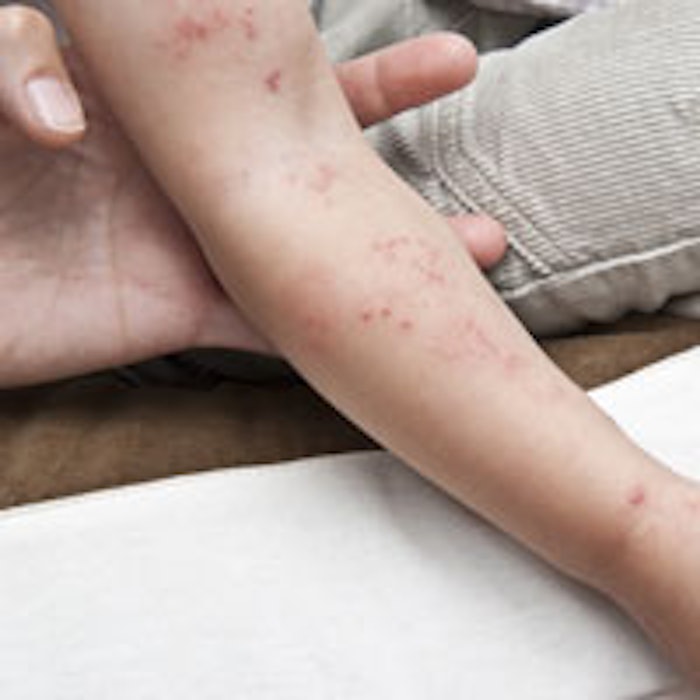
This content is adapted from an article on www.sciencedaily.com, December 10, 2014.
Eczema, an itchy chronic inflammatory disease of the skin, was not associated overall with short stature in an analysis of data from several studies, although a small group of children and adolescents with severe eczema who do not get enough sleep may have potentially reversible growth impairment, according to a study published online by JAMA Dermatology.
Eczema (atopic dermatitis) affects about 10% of children and adults in the United States. The disease results in a number of conditions that could impact growth in children and adolescents, such as sleep impairment, chronic inflammation and treatment with systemic corticosteroids. However, there have been conflicting results in studies about a possible association between eczema and short stature, according to background in the study.
Jonathan I. Silverberg, MD, PhD, and Amy S. Paller, MD, MS, of Northwestern University, Chicago, used data from nine population-based studies to examine a possible association between eczema and being short. The data included 264,326 children and adolescents and 83,511 adults.
An analysis of the studies indicates that, overall, eczema was not associated with significant differences of height in any of the studies or in the pooled analyses. The overall United States prevalence of eczema in childhood was 11.4% and 8.8% in adults.
In a small group of patients, short stature was associated with eczema only when there also was an indicator of insufficient sleep—zero to three nights of sufficient sleep per week, with 1.3% of children with eczema having short stature and getting only as many as three nights of sufficient sleep per week. However, this association was significant only at 10 to 11 years of age, which suggests the association may be reversible, the authors note.
"Childhood eczema is not associated with short stature overall, although severe disease with prominent sleep disturbance is associated with higher odds of short stature in early adolescence. Future studies are warranted to better characterize sleep disturbances and other risk factors and mechanisms of growth impairment in eczema and to determine whether such impairment is reversible," the authors note.










